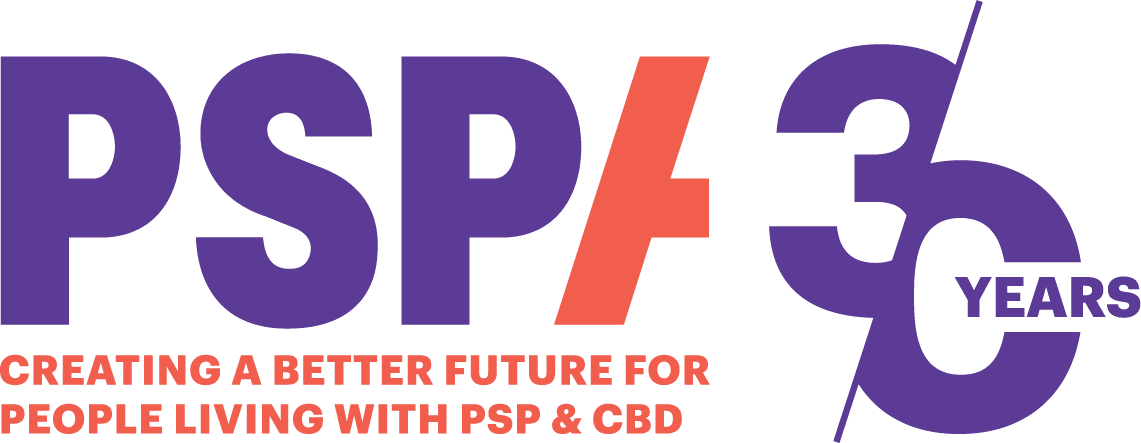Eleonora first started to show signs of PSP in 2011. Here, her daughter Annalisa, shares an insight into her symptom progression.
“It is difficult making this about her and not about me, because these are my thoughts. I tried many times to be in her shoes, since she was not able to move or to talk. Trying to feel as it is to be paralyzed, moved when others wanted not when I needed, cleaned in places that I would never have wanted people to touch or see, fed by a tube in my stomach, and mouth washed with force when my muscles shut my mouth tight against my brain’s best intentions of keeping it open. So many details, so many tasks involving small and sometimes considerable discomfort and feelings we as carers couldn’t grasp or fully comprehend.
Mum started showing signs of PSP around 2011. It started with confusion and irritability. She became physically and emotionally wobbly. She tried to fight it for many years, avoiding pills because she wanted to ‘do it herself, fight herself’ to prove she was strong. Despite her best efforts, her health deteriorated. In 2014, at her 50th wedding anniversary she was overwhelmed by emotions, and she couldn’t do much more than smile and look around. She could dance with dad though… But she could still talk, just not when under pressure or even joyful stress, and her voice was feeble. We excluded stroke, so the most probable cause of the staring gaze and dizziness was PSP.
Months passed by with increasing falls and was punctuated by a car accident, after which we went for another neuro check. A proper routine of medication began in 2016. Since we are Italian, she lived in Italy with dad, but I flew her over to the UK (where I lived and live) in 2017 to see a specialist in Cambridge. We had a definitive answer that this was PSP, a rare condition for a rare person. What else she could have had if not something rare? Not a straightforward disease for quite a complex, unique person: she had a degree in philosophy, a doctorate in sociology research, she was an accountant for my family’s company, she was a mum for three grown-up children, and a granny of three nephews, now five. She was also a teacher and a writer; she had a highly educated brain that should be protective of cognitive deterioration, according to research, and indeed she was able to show signs of conscious thinking and comprehension until the end. In her diary, one of her last records (2016) was ‘what can a mum teach her grown-up and accomplished children when she is aging? To live with a possible disease’’. And how she lived with it was not an easy journey. I cannot count how many falls and how many carers passed through, 15 maybe, because my dad didn’t accept she was sick either, and didn’t want a live-in carer [it is noteworthy how the automatic correction in Word doesn’t recognize the work carer, had to add it in. A sign of how society does think? Caring as not that important in a person life? Think twice].
I tried my best to support her, travelling frequently, training carers, patching up their lack of knowledge and understanding (I am a medical professional), supporting mum to have a ‘normal life’ in a world that doesn’t accept weaknesses, while I knew she was dying inside. She was becoming agitated, especially overnight, and in late 2018 I organised a live-in carer for her and dad. The time had come for him to accept the inevitable; by now he had not slept properly for months, and his back was suffering lifting her from the floor every night. Anti-depressants and anti-psychotic drugs were being used in an effort to get her to sleep properly. This helped her mood, but walking was increasingly difficult, as was talking, and eating. I think the moment we used a hoist for moving her from wheelchair to armchair to bed marked the end of her ability to stand. If you don’t use it, you lose it.
After years of dad pushing for a care home, January 2020 was when I relented and agreed to give it a go, against my best intention and mum wishes but we had to, if anything to demonstrate to dad the weaknesses of the only alternative we had. Life for my Mum in 2020 happened against the backdrop of COVID, it was a sign of God’s grace that I managed to get her out of the care home the day before going into lockdown or she would have died quickly there. Despite the travel bans and strict measures, I managed to travel often. I was still her main medical provider and coordinator since the system didn’t even know what could be done with a patient with a rare neuro-motor condition, the only thing they could provide was assistive care once a week for 15 minutes rather than treating the baseline problem or preventing issues as I could do with carers’ help. You need at least two people to manage a patient like this at home, the system cannot obviously cope with that, there are very little resources to provide more time and attention, especially in a pandemic.
If we speed forward to 2021, when I was with her, I could see the constant and relentless daily deterioration in her health (speech, movements, emotions, sleep, coping with physical care…), it is like a dripping tap, a drop every day. By June 2021, my Mum was unable to swallow even pureed food given by gummy syringe, a gastrostomy was inserted to avoid altogether the risk of choking. Absorbing enteral food (the one you give with a pump directly to the stomach) was not easy at the beginning, bowel needs to adapt, so she kept losing weight and a midline was inserted to deliver nutrition into her arm vein to top up the loss. Those catheters do get infected in the long term and so happened three months later. Again, I managed to create a sort of semi-intensive treatment room at home, and she managed to survive and get back to her chair until Christmas. I think that was the day of her last smile. I was joking and she couldn’t help it, her quiet chuckle expressing a hilarious fit. I am glad that happened. New Year’s Eve she was shaking with fever at 40 degree and her knees got patchy while her muscles turned rock hard. I told the carer to call the ambulance because her condition had deteriorated suddenly, and I had left the house hours and was now kilometres away. After discussing with the nurse on the phone, we decided to keep her home to avoid ending up on a COVID ward dying alone and lonely. She had those fits for three days at the same time every night (Chinese medicine here can tell a lot about the peculiarity of the timing, 10pm, triple energizer time – the metabolism controller) but again she recovered when I put her on intravenous antibiotics. She coped for a month. I hoped she could keep going until her birthday on the 19 February but a pneumonia possibly or embolism (again, difficult to get what you need for a proper diagnosis at home, not mentioning system issues like not being able to get blood results timely) made her breathing become heavy, difficult, supported by oxygen but she needed advance care decisions and those were not in her best interest (inserting a tube on her trachea could have ended up in a tracheostomy, a tube in her neck, that prolonged her life but in a specialized unit waiting for the next crisis). She and we felt all minutes of those three days she resisted, then the only thing I could do was to help her with palliative care. Her children and husband were there, nephews in the corridor, friends praying at home. I still think saving her from another round of exhausting, conscious crisis was the best thing that we could do. She didn’t plan her end of life; she didn’t want to talk about it when approached in the past. Acceptance of a progressive, incurable disease and facing mortality doesn’t come easy for some of us. Yes, she taught until the end we should be finding the strength to fight for every minute of our life. Quoting Albert Schweitzer, a physician and philosopher my mum wrote essays on: By respect for life [ed: in every form] we become religious in a way that is elementary, profound and alive. Impart as much as you can of your spiritual being to those who are on the road with you, and accept as something precious what comes back to you from them. And in the journey with mum, I found my anchor in the Lord. But that is another story… I once was lost but now I am found.”

